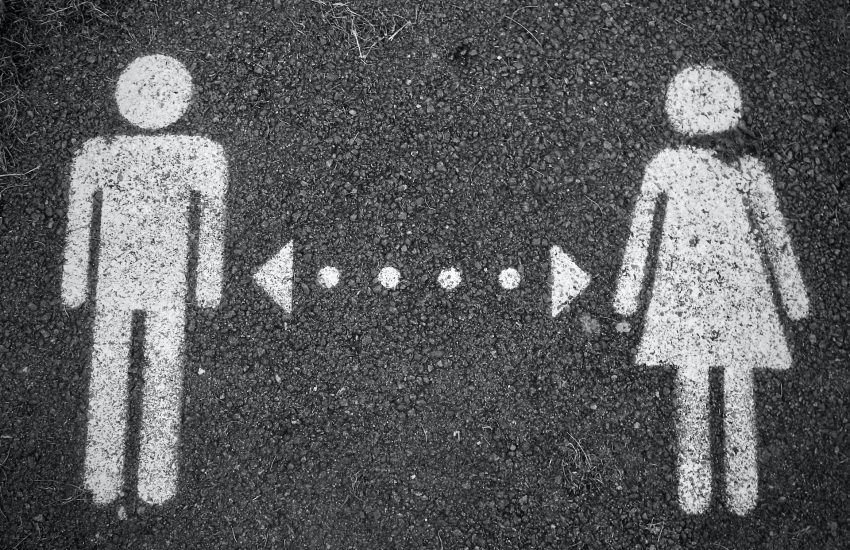Dylan Mulvaney, a biological man, insists that he is a woman. However, his rendition of a female strikes me mainly as bad acting. He is “giving” an infantile teen girl. His impersonation of femininity is an insult to females and a travesty of womanhood.
That aside, I assume that we all know by now that females have two X chromosomes while males have one X chromosome and one so-called Y chromosome, which does not look much like the letter Y at all. It looks more like a truncated X chromosome. These sex chromosomes are present in every body cell, and they determine in all mammals including humans, which sex an individual expresses.
We inherit our X chromosomes from our mothers and our Y chromosomes from our fathers. Research done by Daniel Winston Bellott at the Whitehurst Institute for Biomedical Research in Cambridge concluded that, although it is much smaller than the X chromosome, the Y chromosome does a lot more than just determine sex. The presence or absence of the Y chromosome is what determines sex in mammals. The Y chromosome contains several genes that are key to testes formation.
The sex chromosomes of mammals have evolved over millions of years, originating from two identical chromosomes. The X chromosome has remained large throughout evolution, with about 2000 genes, while the Y chromosome lost most of its genetic material early in its evolution. It now retains less than 100 of those original genes. That has led some scientists to hypothesize that the Y chromosome is largely dispensable and could shrink away entirely.
However, Bellott and his colleagues looked closer at the properties of the ancestral Y chromosome genes and found that the majority of them were dosage dependent. This means that they required two copies of the gene to function. For many genes on the sex chromosomes, only one copy is needed; in females, the copy on the second X chromosome is turned off. This appears necessary, since otherwise many traits would be expressed in duplicate in the female body, which could be at least inconvenient, at worst deadly. In males, of course, the second X chromosome is missing altogether. It seems that some genes have persisted through evolution, while some were lost.
Bellott compared Y chromosomes of eight mammals including humans (chimpanzees, monkeys, mice, rats, bulls, and opossums). He found that there was an overlap not just in the genes that determine the sex of an embryo. Eighteen different genes stood out as being highly similar between the compared species. All of them had broad functions including controlling the expression of genes in other areas of the genome and are controllers of many different processes. The researchers believe that the fact that all these species (and probably many more) have retained these Y chromosome genes is a hint that they are vital to the survival of mammalian species.
Says Bellott: “The Y chromosome doesn’t just say you’re a male; it doesn’t just say you’re a male and you’re fertile. It says that you’re a male, you’re fertile, and you’re going to survive.”
The Y chromosome is much more than just a trigger that determines maleness. Because of its overall effect on the entire genome of the male body medical biologists have begun to wonder if it also impacts the ways in which disease and disease symptoms affect the male and female bodies in different ways.
When Thomas Jefferson declared that all men are created equal he could not have known in which way he was mostly correct. In fact, all males are about 99.9 percent identical when it comes to their genomes. That means that any two males differ by only 0.1 percent at the genetic level, and these differences account for all of the variety preset in males before they begin to develop in their mothers and then the outside world.
Women continue to fight for equality in many aspects of society today but they share only 98.5 percent of their genetic makeup with men. That’s 15 times greater than the difference between any two human males, who are about as genetically similar to a male chimpanzee as to a human female.
Traditionally, men have been the standard in medical research and experimentation, which is the cause why our medicine is largely focused on the male anatomy, male susceptibility, resistance, and responses to bacteria, viruses, medications, and treatments.
Dr. David Page of Yale argues that “We have been distracted and deceived for the last 50 years by the existence of our sex chromosomes … Most genes that are actually involved in making the different anatomies of human males and females are not on the sex chromosomes. Most of them are on the autosomes. They are exactly the same in males and females. It’s just that the autosomes are read differently in males and females because of the sex chromosomes, just as the entirety of the genome is read differently in males and females.”
Accordingly, physicians are now postulating a sex-specific medicine. One for the male body and mind and one for the female body and mind. Says Dr. Page: “Imagine if you’re going to surgery and your surgeon has never been instructed in the anatomical differences between men and women … would you sign the consent form?”
Here are some diseases that affect men more than women:
- Heart disease
- Parkinson’s Disease
- Melanoma
- Pancreatic cancer
- Gout
- Kidney stones
- Abdominal aortic aneurysm
- Autism
- Amyotrophic lateral sclerosis (ALS)
And here are some diseases that affect women more than men:
- Anxiety
- Autoimmune disease
- Breast cancer
- Broken heart syndrome
- Depression
- Irritable bowel syndrome
- Migraines
- Osteoporosis
- Stroke
- Thyroid disease
- Trichotillomania
- Urinary tract infections
It has also become obvious that men and women may react differently to the same treatment or medication. I think that we are headed toward a male and a female version of human medicine. If so, this will produce another headache for the transgender types. Think of it Mulvaney:

Dylan Mulvaney, the woman and the man
If you get sick, would you want to be “treated” as a man or as a woman? (Pun intended)
